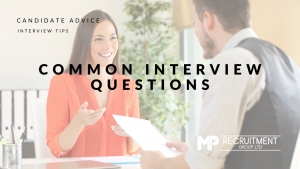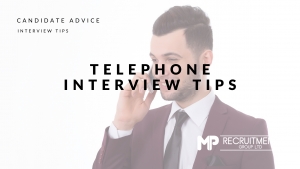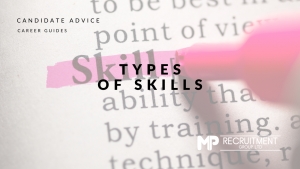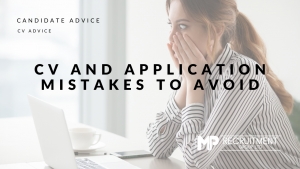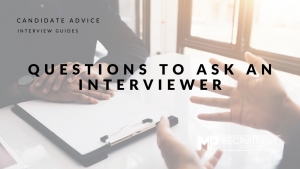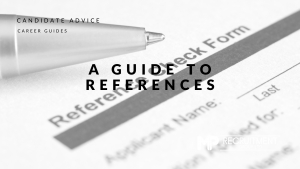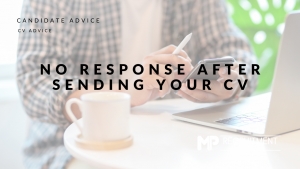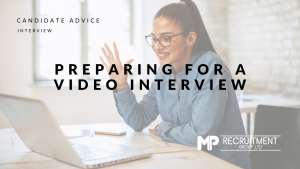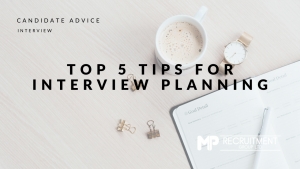Sam Evans
Play2Give
Play2Give is an Oxfordshire fundraising organisation based in Didcot supporting, raising money and awareness for a number of local charities including Oxford Children's Hospital. Since 2007 they have raised more than £230,000 for charities including Sobell House, Ronald McDonald House Charities, Oxford Children's Hospital Charity and many more.
In 2020, MP Recruitment Group made a Christmas donation of £500 on behalf of all the clients that we work with. We look forward to continuing to support Play2Give into future with all the great work they.
Common Interview Questions
COMMON INTERVIEW QUESTIONS

No two interviews will be the same and you can’t predict exactly what you’ll be asked in an interview, however any question that is asked gives a potential opportunity for you to stumble. That’s why preparing as best you can will help minimise these stumbling blocks. Prepare some answers to these questions and you’ll be onto a good start when the interview comes around.
TELL ME ABOUT YOURSELF
Not strictly a question, but it's a common opening for an interview where the interviewer wants to put you on the spot to see how you react to such an open question. This is a great opportunity to talk about yourself in a manner that’s relevant to the role you’re interviewing for, please don’t give your life story. Keep the answer to a couple of minutes, cover your education, work experience, and your interest in the industry and job role.
WHY DID YOU APPLY FOR THIS POSITION?
Here you should focus on the position and the company, and why this excites you. Demonstrate that you have researched their company by telling them why you would want to work for them, Similarly with the job role, explain why this role took your interest and why you chose to apply for this role and not others out there.
WHAT ARE YOUR WEAKNESSES?
Firstly, you need to realise that you have weaknesses, everybody does. If you claim to be perfect, the interviewer will probably see you as someone who won’t fit into their team or company. Weaknesses are not a bad thing, as long as you know how they can be improved. The best way to answer this question is to Is to take on of your weaknesses and flip it on it’s head by giving practical ways of how you’re trying to address it.
For example, “When I first started working, I used to find managing multiple tasks a really struggle, I would always find it easier to complete one task at a time before moving onto the next one. However, I began working alongside my Team Leader to improve my prioritisation and time management skills, and now I find it much easier to multi-task.”
WHY DID YOU LEAVE YOUR PREVIOUS POSITION/WHY ARE YOU LEAVING?
Be honest, but don’t criticise your employer. Stay positive without lying. Quite often the reason for people leaving is because there was no room for progression or candidates are looking for a new challenge, however you should prepare to back these claims up if the interviewer digs deeper.
WHY SHOULD YOU GET THIS JOB?
This is where you will really need to try and sell yourself into the company. This is easier for some than others, but you need to make sure you’re clear as to why you are the right candidate for them, because you can guarantee that they will be seeing other candidates than just you. The company are hiring somebody for a reason, so be the one to explain why you fill the hole that they currently have.
Example “I know that you’re looking for someone with X and Y skills. I have demonstrated these skills at my current employer during our recent project, something that has really helped them.”
WHERE DO YOU SEE YOURSELF IN FIVE YEARS’ TIME?
A classic interview question and a favourite among interviewers. They can gather whether you have thought about the future and ambition with this company, or whether you just see this as a stop gap between roles. Your answer should be specific to the level of the role you have applied for and make sure your aims are realistic and attainable within the company. If it’s a small company, there may be less opportunities for progression to higher level roles as there are less openings to progress into, whereas a national or global company may have more opportunities.
WHY IS THERE A GAP IN YOUR CV?
Again, you should be honest with this question. You should have explained this in your CV or cover letter, so try to take positives from it, such as any skills you used. If it was for personal reasons, then say that. Another suitable answer would be that you were ‘taking a break whilst looking for a new career path’.
DO YOU HAVE ANY QUESTIONS?
This should be a yes. Think of questions about the company or the role that you would like to find out more about. Perhaps you could ask about training opportunities, career progression, or why the role has become available. Asking questions will give you a better gauge as to whether this is the right move for you and will keep the interviewer happy that you are showing interest.
Telephone Interview Tips
TELEPHONE INTERVIEW TIPS

Sometimes an employer will conduct an initial telephone interview as a way to whittle down a number of candidates to a much smaller shortlist. It is also a good way of testing your communication and telephone techniques, so it’s still important that you prepare well for a telephone interview.
DO YOUR RESEARCH
You are certain to be asked specific questions about the company, so make sure you've done your homework look at their website, twitter and Facebook accounts. Also, take a look at the latest developments in their industry so you can converse with confidence.
PREPARE YOUR CALL ZONE
This is key to a successful telephone interview. Pick a place that’s free of much background noise and has good signal. It’s also not recommended that you sneak off during your lunch break at work unless you’re able to get to a quiet away from your building, otherwise you might be overheard. A quiet room at home away from noisy children or pets would be a perfect choice.
GET YOUR TIMING RIGHT
If you agree to a time, you should stick to that. If you know you’re going to be able to answer your phone due to work commitments, then let them know as soon as possible that you need to reschedule. You don’t want your first point of contact with a prospective employer to be your voicemail message, that doesn’t leave the best impression. On the subject, you should change your answer message if it’s a funny or joke message, just incase they do go through to voicemail.
LOOK THE PART
This sounds a bit strange, but it makes sense. The temptation is to keep your pyjamas on while you lay on your bed because you don’t need to make an effort. This is far from the case, if you dress casually, you’ll probably sound casual, not what you’re aiming for. You don’t need to fully suit up but wear professional clothes and you’re more likely to come across well on the phone and stand instead of sitting or lying on a bed.
STAND UP AND WALK AROUND
Again, this might sound a bit odd, but standing will naturally make you talk more naturally and confidentially, and it tends to give people more energy in their voice. Walking around always you to move and gesture your hands in a natural way which you should find should help you to speak more confidently and clearly.
CHARGE YOUR PHONE
The majority of people will be using their mobile to take the call, which is perfectly acceptable, but be sure to keep it fully charged before the interview. There would be nothing worse than the phone cutting out as it runs out of juice mid-interview, then you’re unable to recall them. It might also suggest to the interviewer that you haven’t prepared yourself.
ANSWERING THE PHONE
Answer the phone professionally with something like “Good morning / afternoon, Tom / Sarah speaking.” Smile when you talk, as this naturally ensures that you sound enthusiastic. Stand up if possible, as this will make you feel more assertive - but never pace about.
ASK QUESTIONS
You should always have some questions for your interviewer to demonstrate your interest in the position. Prepare a minimum of five questions, some which will give you more information about the job, and some which delve deeper into the culture and goals of the company.
Types of Skills
Types of Skills
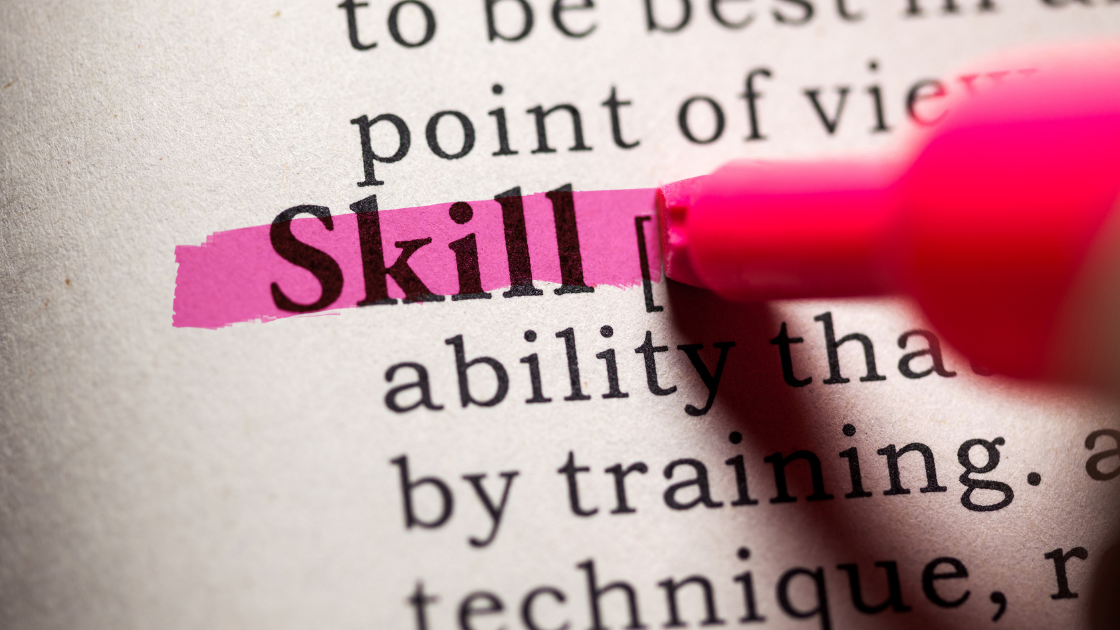
Explaining your skillset is an important part of writing your CV. However, there are different types of skills, and it’s vital that you display the most relevant skills for your needs. Here’s our explanation on the different types of skills that you can give on your CV.
Soft skills
Also known as interpersonal skills, soft skills are qualities that allow you to interact and work effectively with people. In order to be successful in any role, you will need to work with other people, so it’s good to list some soft skills to show how you would work in a new team. These skills include Leadership, Teamwork and Communication. Although soft skills are valuable, they’re not always enough to get a job on their own - some industries require qualifications or experience. Since they’re not easily quantifiable, it’s not enough to just say you have them, you actually need to be able to back them up with examples of how you’ve used them.
Hard skills
Hard skills are teachable skills that you can easily quantify. They’re abilities or knowledge that enable you to be successful in a particular job. Employers will often look for these skills for positions that require specific skills, experience or knowledge in order to be successful at the job. Hard skills can be things such as a qualification or degree, proficiency in another language, or experience from a previous role such as computer programming.
Transferable skills
If you’re looking to take your career in a change of direction, then you’re going to want to talk about your transferable skills that you can use to help you move across to another job title or industry. They can be general skills or role-related that can be used in a variety of different jobs across different industries. Some examples can be IT proficiency, or language skills. It could also be that you’ve gained great communication and customer service skills from working in retail and are looking to take those skills to an office environment. As always, you should tailor your skills to the job you are applying for.
CV and Application Mistakes to Avoid
CV & application mistakes to avoid

So you’re writing your CV, you’ve laid it out well, put all your relevant experience and qualifications together and you’re ready to apply for your dream job! But hold on, before you start applying for jobs, take a moment to check to make sure that you haven’t been making these common CV mistakes.
Sorry, who are you?
You should put your name at the very top of the CV, in bold, and maybe even one font size higher than the rest of the CV. As well judging your skills and experience, you want your potential employer to remember your name. You don’t need to write CV or Curriculum Vitae at the top, it’s already quite obvious that that is what it is!
Giving the wrong impression
As well as your name you should include your contact details so that the hirer or recruiter can contact you. This includes your email address, but it’s important that your it is appropriate for a potential new employer. Something like joseph.king1@youremail.com is fine, but hotblondie20@mymail.com is much less likely to be taken seriously. If you’re still using the email address you created as a joke when you were 13 years old, perhaps it’s time to consider creating a new one for things like this!
Not checking
In our busy lives we often like things to be done quickly, so you might be tempted to not check through your CV. After all, there’s probably no mistakes in it, right? Well actually, there probably is. Spelling mistakes can easily be spotted and sorted with spell checker on things like MS Word, as can grammar issues. However, not everything is picked up and sometimes your wording might not give the emphasis that you want. Go through it once, then again. If your spelling and grammar is not your strong suit, then get a friend to check it for you.
Stop using Comic Sans
The font is another important part of the CV, some common fonts like Comic Sans are just not designed for a professional CV. Use more standard fonts like Calibri to make it easy to read.
Using all of the page
Some people worry that lots of white space on your CV is a bad thing, and that you should fill every possible area of the page with text. This isn’t the case, don’t fear the gaps! A well-presented CV can have areas of white space on the paper. It actually makes it easier and more appealing to read than a CV that’s crammed with thousands of words. Keep your CV down to only relevant information that your employer will want to read about.
Forgetting to attach your CV or Cover Letter
After all the work you have put in, it can be a nightmare when you submit your application and realise you forgot to attach your Cover Letter, or even worse, your actual CV! Now all the recruiter has is your name and an email address, and you look like a bit of a numpty! While it’s easily done, it shouldn’t happen. Rather than rushing through your application, take the time to make sure your CV and any other documents have attached properly before sending.
Addressing the hirer
While this may be another obvious one, make sure that you have found the name of the relevant hiring manager and spell their name correctly. Miss Stones doesn’t want to be called Miss Jones, Miss Stines, or even Mr Stones! Just make sure that you spell her name correctly. If you’re not sure, go onto the company website or check on LinkedIn!
Questions to ask an interviewer
Questions to ask an interviewer

An interview is a two-way process. The company/interviewer is trying to see if you’re the right candidate for their job, but at the same time you should be trying to discover whether this is the role or company for you. You will be given an opportunity to ask some questions, normally at the end of the interview.
Why you should think of some questions
Saying no doesn’t leave a great impression, as it makes you seem uninterested and could create a bit of an awkward scene. You should think of a few questions, and remember that some of them might be answered for you during your interview, so it’s better to think of a handful so that you definitely have some to choose from at the end.
Refrain from asking certain questions
Namely about salary, benefits, perks, holidays etc. You will normally have an idea of things like the salary range anyway, but these are the things that you can discuss at a later date if you get offered the job.
What do you enjoy about working here?
This is a great question as it turns the tables a little, suddenly you’re interviewing them and they have a chance to sell the company to you! It also shows that as much as they are deciding whether to choose you, you are also deciding whether to choose them!
What could I do to prepare if I’m offered?
This shows you would be willing to take extra time to make sure you’re as good at the job as possible and that you’re eager to learn and prepare before you’ve actually started.
Is this an existing position or is it newly-created?
Here you can determine the reason for the job opening. Are you going to be replacing someone and have you got big shoes to fill? If it’s an existing role then there could be certain ways that people expect you to carry out the job. However, if it’s a newly-created role then you could have more scope to develop the role and make it your own.
Are there opportunities for personal development or promotion?
Not every role has opportunities for you to develop or progress up the ladder. Sometime people find themselves stuck with no way to get promoted. If you’re looking for a role where you can grow your career, you probably want somewhere that can offer you the opportunities you’re looking for.
What are the company’s future plans?
This is another great question and shows more interest in the company. They may have already asked you about where you want to be in 5 years’ time for example, so this spins that on its head. They may have great plans for the future which you want to be involved in. Although, you might get the impression that they’re struggling and that they might not be around in six-months’ time, potentially leaving you out of a job.
When can I expect you hear back from you?
A perfect way to end an interview. They may already tell you, but if not then it shows your interest in the role and that you’re keen on it. It also gives you a time frame of when to expect to hear back from them. There’s no point sitting by the telephone if they’re going to wait a week before they get back to you. You also know if you should start chasing if the deadline has passed.
A guide to references
A Guide to References
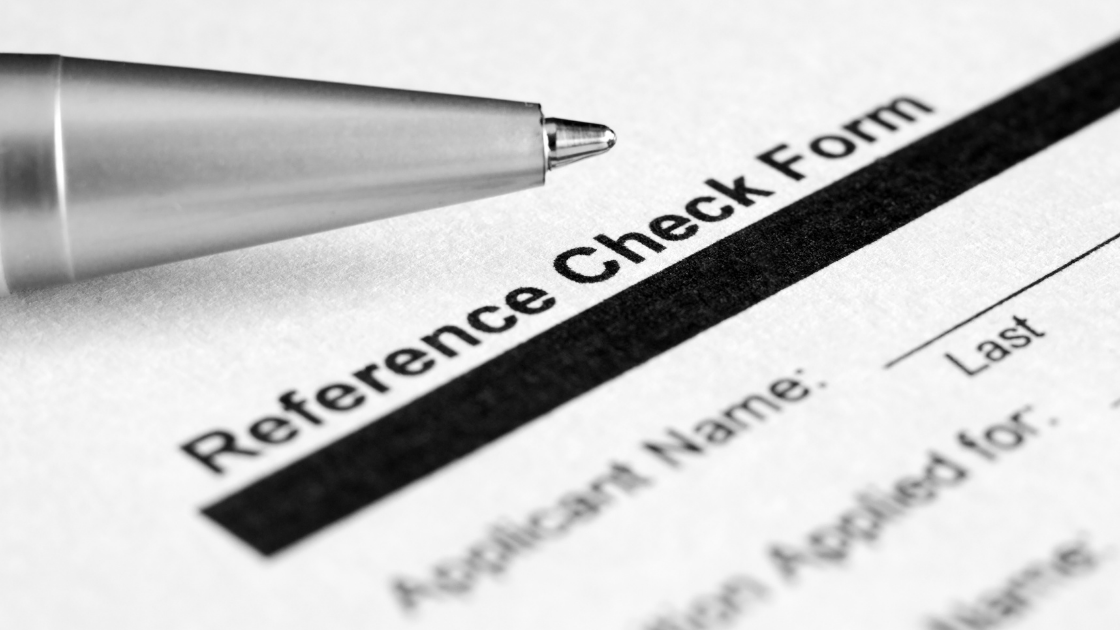
References are a part of virtually every hiring process, however for many jobseekers, they tend to be a bit of an afterthought. Many employers will accept personal or ‘character’ references, but what are they and what’s the difference? Also, what sort of people should you ask for a reference and how would you go about getting one from somebody?
In this guide, we explain what a reference is, why they’re important and how you should go about obtaining one.
What are references?
To put it simply, references are people employers can ask to vouch for your character. Whereas your CV is your chance to sell yourself to employers, references allow them to check that you’ve been truthful in all that you’ve said, and therefore live up to expectations. They may also be used to learn more about how you interacted with staff at the company.
The importance of references
References give hiring managers the chance to talk to previous employers or colleagues and find out more about your personality. This number may differ, depending on your profession. However, we’d always suggest having two solid references as a general rule of thumb.
Who to ask
Former bosses or line managers, colleagues and even clients all make good references. Employers are most interested in gaining an unbiased view of your personality, work ethic and performance. For this reason, friends and family members should generally be avoided, no matter how professional your relationship with your mum is. If you don’t have much in the way of work experience, asking a form tutor, former teacher or professor, is also acceptable. The key is to ask people you trust, and those who you can count on to be positive about your contributions.
Asking for a reference
You shouldn’t use someone as a reference without their permission. Even if you consider it a foregone conclusion that your choice will be complimentary, giving a heads up provides at least some indication of what it is they will say. If you’re in regular contact with somebody you are thinking of asking for a reference, asking them in-person or on the phone is the best way to approach the subject. That way you can explain exactly what kind of jobs you are applying for and thank them accordingly. If you haven’t spoken for a while, sending a polite email to your perspective reference is likely more appropriate.
Do I need to include references somewhere on my CV?
In many instances, you shouldn’t need to provide a reference before you reach the interview stage. Generally, writing ‘References will be available upon request’ is sufficient, however it’s advised that you plan who your references are going to be in advance, just in case they ask you to provide details on your interview.
No response after sending your CV
No response after sending CV

Not hearing back from a company or a recruiter that you’ve dealt with can be soul-destroying, particularly if it happens on more than one occasion. You’ve spent time to create your CV and Cover Letter to make it as good as possible, you’ve found a suitable job and applied for the role.
Chasing up
The first port of call would be to chase up with the person you were dealing with, especially if it was a recruitment agency. Often recruiters are dealing with many roles and many candidates, and sometimes a quick reminder to them that you are waiting for feedback can be all it takes to get a speedy return. Give them a call or send a quick email to ask if they can chase for some feedback. This often goes down well as it shows you are interested in the job and are being proactive and using your initiative, good traits for a candidate.
Your CV might be too samey
In today’s market, there are a large number of qualified candidates for each role, so it’s important that when you’re applying for each role that your CV is the one that stand out from the crowd. With such high volumes of applications, it’s easy for your CV to be overlooked. Many candidates use CV templates which loses the individual and meaningful look that you need.
Numbers game
If you pin your hopes on just one job, then you’re really narrowing your chances of success. Instead, if you are sending your CV to a number of jobs then you are greatly increasing your chances of getting interviews, and ultimately, a job offer. You should still make sure each application you are sending is of a very high quality, a mediocre CV will still be missed even if you send it out 100 times.
Preparing for a video interview
Preparing for a video interview

These days, everything is done online, and that has even extended to interviewing. More and more businesses introduced video interviewing even before the Covid-19 pandemic, but since then the trend for video interviewing has rocketed. Getting invited to a video interview may leave you relieve that you don’t need to leave the comfort of your house, or it might fill you with dread.
A video interview shares some similarities with a regular interview, but there are also some things you might want to do differently when preparing for a video interview.
Get your background right
Normally you will arrive at a company office, which will likely be a formal setting, and you won’t even give it a thought as to what your surroundings will be. A video interview is different, as you’ll probably be doing it from home. It’s always good to have a clear and uncluttered background. Check to make sure that there will be no inappropriate things in the shot of the camera. Things like posters on the walls, or your favourite film memorabilia cluttering the shelves. Even though it’s a video interview, you’re still interviewing for a job, so your surroundings should represent a formal environment, making it look like you care.
Dress to impress
You may be tempted to do the classic thing of dressing up from the waist up but keeping your pyjamas on the bottom. We wouldn’t recommend this; you’re leaving yourself open to getting caught out. What if you have to get up, or you knock your camera and it focusses downwards? It could happen, so why take the risk. Dress professionally and you won’t run the risk, and you’ll probably also find yourself in a better mindset for the interview.
Make use of notes
One advantage that you can have during a video interview is that you can use notes if you wish. As long as you do it subtly and don’t appear to rely solely on the notes you’ve made then this is perfectly acceptable. Use them to help you answer questions or remember specific facts about the role or company. Just don’t use them as a script, the interviewer will most likely be able to tell.
Look at the camera
When you’re at a face to face interview, eye contact is really important. That’s no different with a video interview, but it’s more difficult. You will see the interviewer on the screen, but the camera will normally be above the screen, so if you always look at the screen then your eyes will be slightly looking down. Focus on trying to look into the camera instead as much as you can, as this will give a much better impression of giving eye contact.
Remove any distractions
Another issue you might encounter at home is that you may have young children, pets or other interruptions which could bring awkward moments during your interview. Switch off your phone, call a baby sitter, shut pets in a different room, turn the TV and music off. Try to foresee any interruptions and do your best to prevent them. Also, make sure that other people you live with are aware that you are about to start an interview, you don’t want to
Get some practice
It’s probably a good idea to do a practice run. All you need to do is turn on your computer, laptop or smart phone and experiment with things like lighting, backgrounds etc. It would also be good to make sure you can find a good angle that works, and check that your microphone works before going into a live video interview. Get these things sorted beforehand to make sure your interview goes as smoothly as possible.
We hope you find these tips very helpful. Like we say, video interviews are getting more and more popular among hirers, so there’s a good chance that you’ll have a video interview in the future if you haven’t already. Follow our guidance to make sure you’re prepared as much as possible and get things right the first time as soon as you meet your interviewer.
Top 5 tips for interview planning
TOP 5 TIPS FOR INTERVIEW PLANNING

1.) DO YOUR RESEARCH
You are certain to be asked specific questions about the company, so make sure you've done your homework look at their website, twitter and Facebook accounts. Also, take a look at the latest developments in their industry so you can converse with confidence. Here’s out top 6 tips for planning for your next interview.
2.) PLAN YOUR OUTFIT
While a book shouldn’t be judged by its cover, the fact is that you are often judged as soon as you walk into the interview room. Wearing a creased shirt and or sporting scruffy hair will not make a good first impression. Make sure your shoes are polished, your clothes fit correctly and that your accessories are subtle. You should ensure that what you wear is comfortable so you can put all your focus onto your answers, so be sure to plan what you’re going to wear before the interview day.
3.) KNOW YOUR CV
One of the most important things when preparing for interview is to make sure that you know your CV inside and out. The interviewer will almost certainly ask some questions relating to your CV, to find more information or test your knowledge of an area. If you’re unable to provide satisfactory answers for questions relating to something you’ve put on your CV, then alarm bells will start to ring. Make sure you know everything that you’ve put on your CV and be ready to answer questions on experiences or skills that might be related to the job you’re interviewing for.
4.) PRACTICE SOME ANSWERS
If you can prepare some answers for questions that you think might come up during the interview, then you’ve set yourself up for a good interview. If you can answer their questions confidently and sound like you know what you’re talking about, then the interviewer should be able to grasp that you’ve come prepared which should impress.
5.) PREPARE YOUR QUESTIONS
An interview is a two-way process, and while you have to sell yourself to the company, the company will also want to sell themselves to you too. If you don’t like the feel of the company, then they may not take the position if offered, even if the company thought you were the best candidate they’ve ever had. You should prepare a few questions to ask at the end of the interview about the company, the role or anything else that you’re curious about. It might help you to decide whether the company is right for you and will show to the interviewer that you’re keen.
Now you've planned all that you can, you're ready for the interview. You'll probably be nervous but that's a good thing, and there may be some things that make you have to think on your feet at an interview, but you've done everything you can to interview as well as possible.
To get more interview tips as well as career guidance, don't forget to follow us on social media, where you can stay up to date with all our blog posts and recruitment guides.


